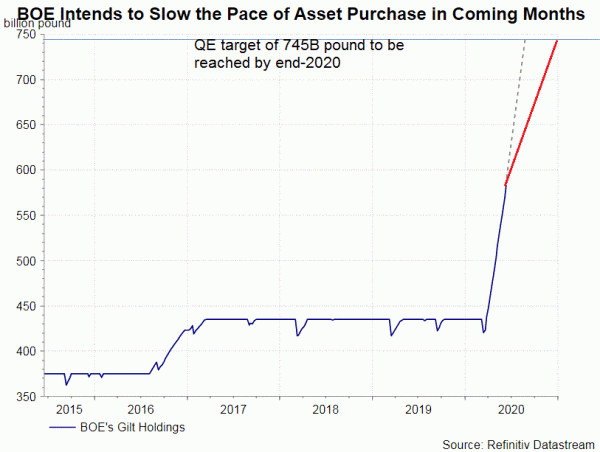BOE turned out to be less pessimistic than we had anticipated. The members acknowledged that global economic contraction in 2Q20 will be “less severe than expected”. While the size of QE is expanded, the members will likely slow the pace of asset buying. The policy rate stayed unchanged at record low. The decision sent gilts lower.
As expected, BOE increased the size of its asset purchase program by +100B pound. Chief Economist Andy Haldane dissented as he objected the expansion. The intended purchase, worth of 745B pound, is expected to be completed by end of the year. This suggests that the central bank will slow the pace of purchase in coming months. Meanwhile, BOE unanimously left the Bank rate unchanged at a record low of 0.1%. To our disappointment, the minutes did not show discussion about negative interest rates.
Policymakers were less concerned about the economic outlook than the previous meeting. The members acknowledged that “payments data are consistent with a recovery in consumer spending in May and June, and housing activity has started to pick up recently”. They added that “recent additional announcements of easier monetary and fiscal policy will help to support the recovery”. Yet, the members also cautioned that “the labour market has weakened materially”. The central bank also took note of the sharp fall in inflation in May (headline: +0.5% y/y). The members cited the collapse in oil prices and slowdown in domestic activity as the key reasons for the decline.

